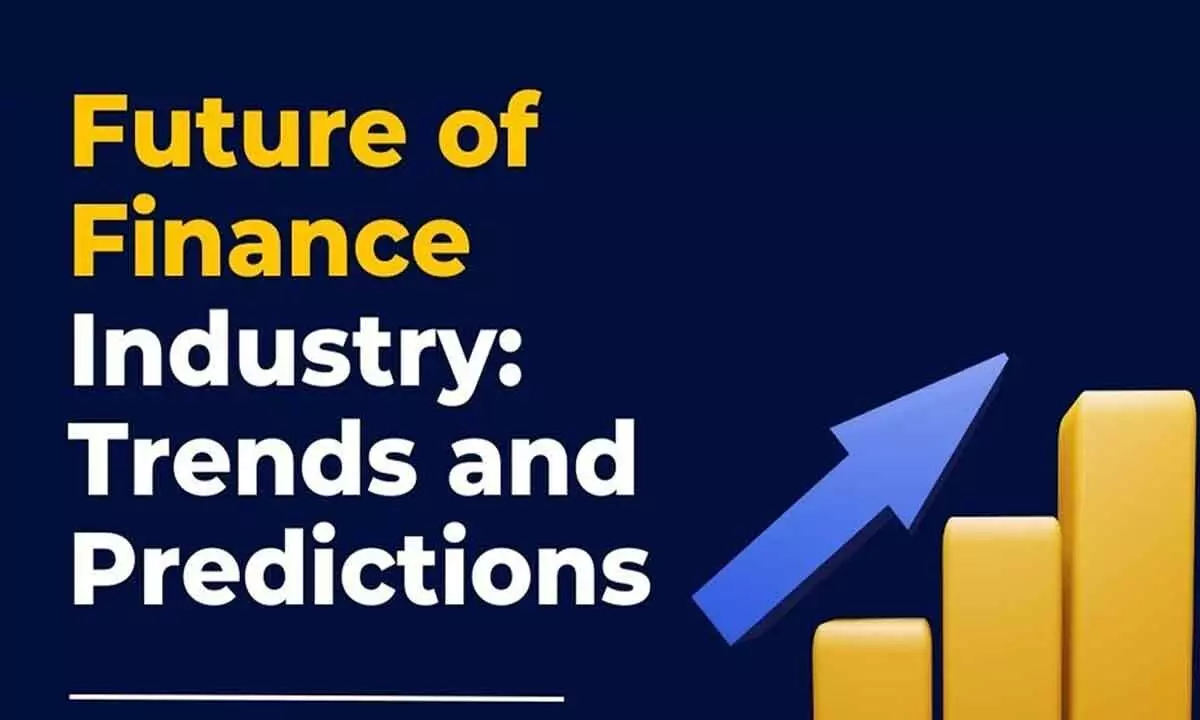Live
- From Data Silos to Unified Insights: How Cash Flow Management SaaS is Transforming Organizational Finance
- Top Personalities Who Made A Significant Mark In Their Particular Sector In 2024
- ‘Vaaradhi’ set for Dec 27 release, pre-release event held
- ‘Daaku Maharaaj’ team expresses confidence on film; set for Jan 12 release
- ‘It’s Okay Guru’ drops soulful song with actor Siddharth vocals
- Kichcha Sudeep’s ‘Max’ trailer looks powerful
- Bengal school job case: Court rejects accused's plea to return to US by Jan 2
- ‘Drinker Sai’ appeals to both younger and family audiences: Producer Basavaraju Laharidhar
- Kerala BJP’s ‘love’ towards Christians is fake: Ex party leader
- Google Gemini Now Features PDF Screen Awareness in the Files App
Just In
What are some of the upcoming big trends in Financial Education


I recently came across some important global studies. 75% teens felt inconfident about their financial knowledge, 22% felt they lacked even basic, foundational financial skills, 33% couldn’t tell the difference between credit and debit cards.
I recently came across some important global studies. 75% teens felt inconfident about their financial knowledge, 22% felt they lacked even basic, foundational financial skills, 33% couldn’t tell the difference between credit and debit cards. These statistics worry me. With more than 35% of the world’s population under the age of 15, it is important that kids start learning about money and how to manage, grow, and enjoy it responsibly from a young age, when the repercussions of mistakes or faulty decisions are low-stakes and easily corrected. Given that kids can start grasping basic financial concepts by the age of 3 and are well on their way to developing their money personalities by the time they are pre-teens, an early start to financial education for kids becomes even more imperative.
As worrying as these numbers are, there’s a silver lining. 73% of kids are keen to know more, and 80% of parents want their kids to be better prepared and more financially aware than they were. So, there’s hope.
Based on the patterns we’ve observed at BrightCHAMPS around the appetite for learning and the most effective ways in which kids learn about money, here’s what we know what the parents and kids want by Prasanna N Muley, Director of Learning & Innovation, BrightCHAMPS.
1. Strong foundations – Today’s parents are keenly aware of the fact that with the pace at which the world is changing, while learning about current trends and new instruments is important, what’s even more important is having a strong foundation around concepts like currencies, appreciating and depreciating value of money, purchasing power, budgeting, saving, investing, loans, interest rates, debt, etc. The way in which we navigate these concepts might change, and we might use increasingly sophisticated tools to navigate them, but financial systems and economies around the world are built on these core principles.
2. Digital literacy – Now, more than ever, basic tech skills and digital smarts are crucial to be financially safe and aware. With the rising number of OTP and credit card scams, half-baked information from unqualified fin-fluencers and financial gurus, one-click in-app purchases, password-less transactions, inter-linking of all accounts, hacking, new technologies such as blockchain, cryptocurrencies, DLTs, NFTs, digital wallets, smart contracts, and more – sound digital skills are imperative to well-rounded financial skills.
3. Global contexts – Generation Alpha has an almost unprecedented level of global access. As the second generation of digital natives, it is also the generation that is most likely to travel, study, and work abroad thanks to an increasingly borderless world bolstered by social media. Given all of this, we see an increasing urgency in parents to prepare their kids for a global existence, money-wise. One where they can navigate between currencies, spending cultures, the relative value of different currencies and what it means for the strength of their passports.
4. Show, don’t tell – It’s not just about using immersive technologies such as XR, AR, VR, or MR, it’s about active decision-making through modelling and simulations. Parents now understand that passive, theoretical knowledge is not enough in every sphere of life, but especially when it comes to money due to the ramifications of not being able to use those learnings in the real world. Research also shows that even when they have the knowledge, 33% of adults tend to put off or delay major life decisions due to lack of confidence in their ability to handle money. This can directly impact how kids grow up to make investments and expenditure decisions. We all know at least a handful of people who, despite being really smart with all the right knowledge, aren’t allowing their money to grow the way it could simply because taking action feels stressful and overwhelming, don’t we? So, the mandate is clear – teach kids how to act and help them build confidence in their execution, don’t just impart theoretical gyaan, especially regarding finances.
5. Financial freedom, not financial fear – All of this brings us to the biggest and most heartening change in recent times – how parents want their kids to perceive money. There is a growing sentiment among millennial parents to not let their kids inherit their own deeply-ingrained conditioning and fears of money. They want their kids to learn about money in a manner that makes them think of it as a tool that must be used smartly to lead more fulfilled and happy lives, not something they need to worry about incessantly and fear all the time!
and fear all the time!

© 2024 Hyderabad Media House Limited/The Hans India. All rights reserved. Powered by hocalwire.com






